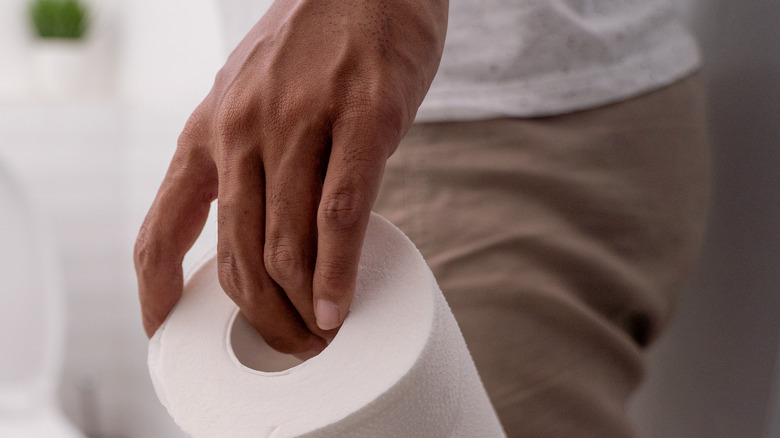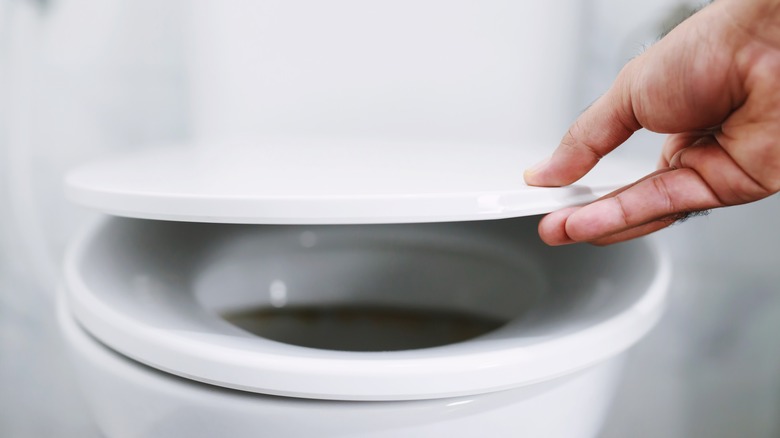Serious Poop Symptoms Men Shouldn't Ignore
Men appear to have it pretty good when it comes to toilet trouble, or lack thereof. In a 2009 study published in Gender Medicine, researchers found that out of more than 500 patients, women were more susceptible to abdominal pain, bloating, constipation, and abnormal stool with a hard, pellet-like consistency. While men may have lucked out when it comes to these gastrointestinal problems, there are symptoms they should be on the lookout for specific to the health of their colon.
While not always cause for alarm, it's important for men to take note of any unusual changes in bowel movements. Although many of these changes can often be traced to diet, colorectal cancer shouldn't be ruled out. According to the American Cancer Society, roughly 1 in every 23 men will be diagnosed with colorectal cancer during their lifetime. Because colon cancer doesn't usually present with symptoms during earlier stages, if you notice any of the following poop-related symptoms, reach out to your doctor promptly, advises the U.S. Centers for Disease Control and Prevention (CDC).
Pay attention to changes in bowel movement consistency, frequency, shape, and more
The first couple of bathroom-related symptoms for men to be aware of include changes in stool's consistency or how often you find yourself using the bathroom. More frequent bouts of diarrhea or constipation, for example, can both be symptoms of colon cancer, according to the CDC. If your poop has taken on a different shape, this is also something men will want to pay attention to. While healthy stool is shaped similarly to a hot dog or snake, experts at Jefferson Health explain that if your poop becomes as thin as a pencil, it could be a sign of colon cancer.
Finding blood when going number two is another serious symptom not to be ignored that can tell us a lot about our health. "If you just see blood isolated to the toilet paper when you wipe, it's likely coming from a perianal source like a hemorrhoid or fissure," gastroenterologist Dr. Lucy Joo told Jefferson Health. "But when it's mixed in with stool, it may be coming from the rectum or higher in the colon and could be an indication of many other disorders including inflammatory bowel disease or colon cancer."
Tips for colon cancer prevention
While these are all important symptoms for men to be mindful of, women are also susceptible to colorectal cancer. With approximately 64,000 new cases diagnosed annually (via Penn Medicine), women will want to reach out to their doctor if they notice any of these same changes in bowel movements.
There are things all of us can do, however, to help reduce our risk of colon cancer, particularly as we age. Among the most important is getting screened regularly, starting at the age of 45, reports the CDC. Getting plenty of exercise, maintaining a healthy weight, and limiting how much alcohol we drink are also key factors. Eating a well-rounded diet is another preventative measure we can take. In fact, see what our expert had to say about what specific foods to eat and which ones to limit to reduce colon cancer risk. Finally, making changes to some of our bathroom habits may also be beneficial, such as avoiding this one poop mistake that may increase colon cancer risk.



